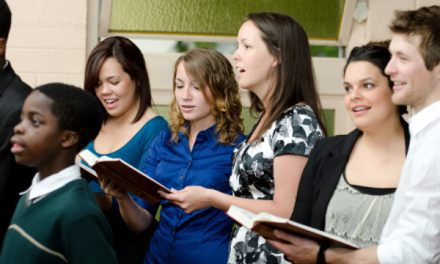If your home is like mine this time of year, it has been a frenzy of fall activities for school and church. In this season, parents and kids alike often feel hurried and rushed. During these weeks of busy schedules we may neglect our family’s quality time and the training of our children for lack of time.
We know that children inadvertently soak up knowledge as their subconscious minds are ready and “at attention” to glean anything and everything that the Prince of the World has to offer. We, as parents, have to make time for purposeful teaching and training of our children.
So what can we teach our children to help arm them in this battle for their souls? The answer is simple—the Word and the works of God. However, it is in the application of this principle that many parents fall short. In addition, many parents do not understand how to teach these things and believe they cannot.
How do we begin? What does this look like in real life? First, let’s get out our Bibles and consider the following verses: Joshua 24:15, 1 Thessalonians 2:11, Genesis 18:19, Ephesians 6:4, and Joel 1:3.
Next, let us ask ourselves the question, “What is the goal of educating and teaching our children?” The world may say something like, “Getting our kids to age 18, out of the house, and on their own before they become pregnant or get someone pregnant, and keeping them away from alcohol and drugs.” Others may say the goal is teaching knowledge and facts so they can succeed in this world.
While both of these may be part of education, true education is molding their inner beings toward God. Education should be about teaching them a Biblical worldview, one that is different from the humanist, evolutionary, Gnostic, etc., worldviews they are inadvertently absorbing. The education of our children should be geared toward getting them to love, trust, and therefore obey God even better than we have. The goal of education should be to teach our children how to train their children to love and trust God. It is our role and responsibility to teach them what the truth of the Gospel message is all about (John 8:32).
Ecclesiastes 12:13 tells us that the whole duty of man is to fear God and keep His commandments. This is the beginning of knowledge (Proverbs 1:7). Why not start here? Combining Bible study and the three R’s is not as difficult as many think. I have read that in 1800 Thomas Jefferson sent a delegation to find out the literacy rate in the colonies. Surprisingly, it was 98%. This was without the National Education Agency, Department of Education, Education Czars, and without any government involvement. The consistent factor for this achievement was that the fathers were reading to their children daily.
Mind you, this was from the King James Version and not a watered-down or “easy-to-understand” children’s Bible or “story” Bible. Those men practiced being like the patriarchs of the Old Testament— a lesson I and most other fathers can learn.
A big discouragement to me is that the education our children receive from the world has in many cases completely separated secular education from spiritual education. This is evident in the fact that children, young adults, and even older adults have life goals that are not Biblically based. Let’s remember the warning in Hosea 4:6, “My people are destroyed from lack of knowledge ….” This is not referring to book knowledge but “fear of the Lord” knowledge. It is up to parents to fill this role and not merely rely on Christian schools or the church.
Perhaps the question we should be asking when educating our children is, “By what do we want our children known?” Do we want them known by their hearts, spirits, and childlikeness? Or, do we want them known by their grades and accomplishments? The answer is both!
Yet what do we especially want the world, the unsaved, to see? Which type of education better glorifies God, gives Him the glory and honor while promoting His kingdom? We all know the answer to that. The point of this article is to get the family (including mine) to stay focused and direct itself Biblically. We must always think about why we educate our children and what our purpose should be.
By David Longley, D.O.
This article first appeared in Think magazine. To learn more or to subscribe, click here.





